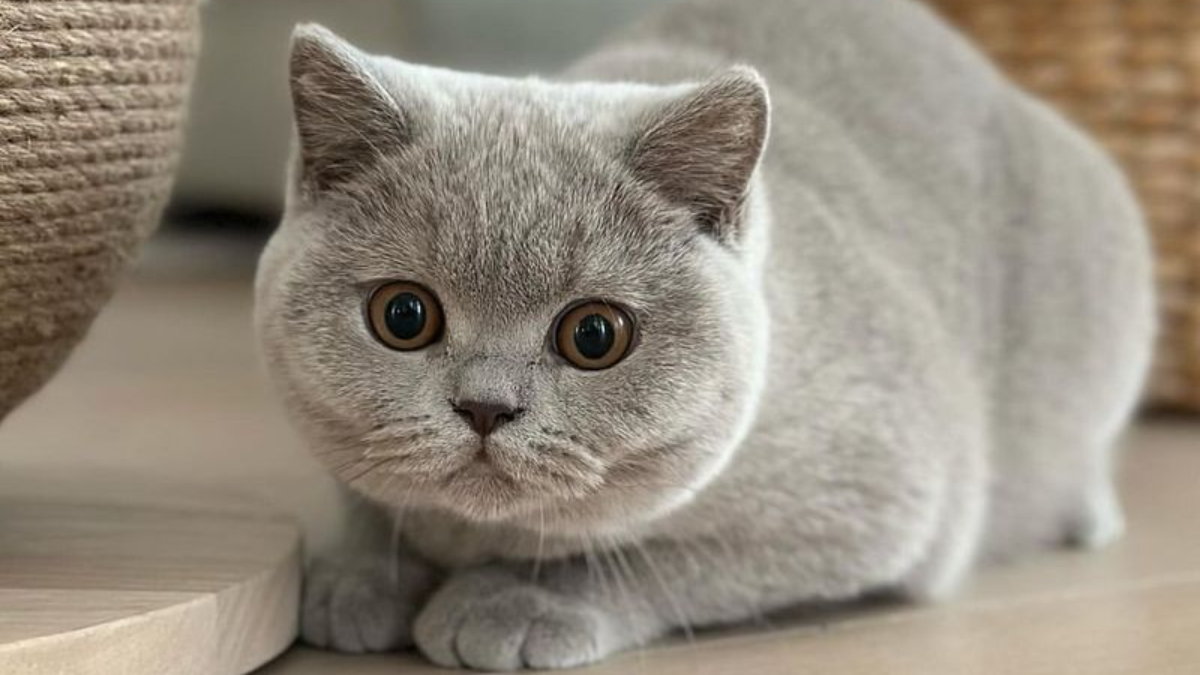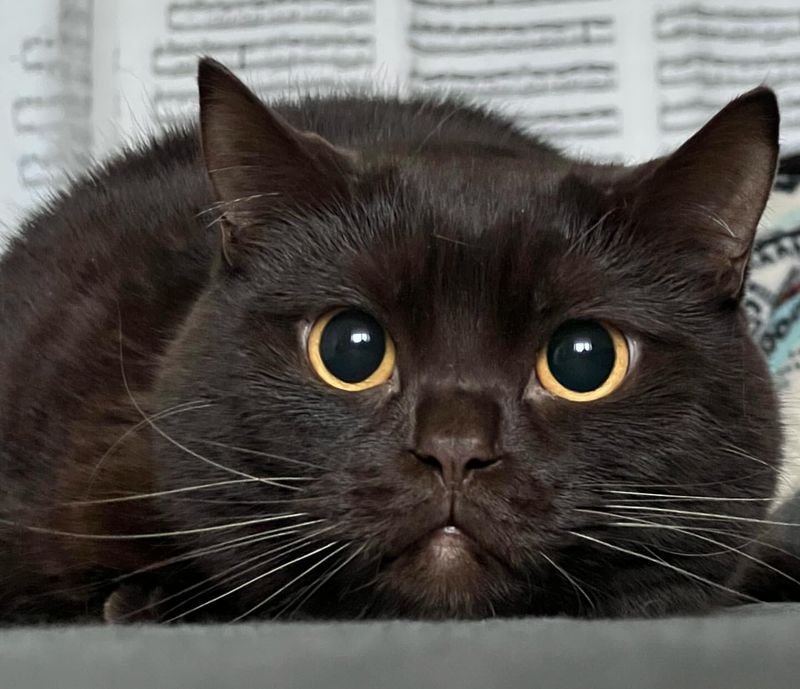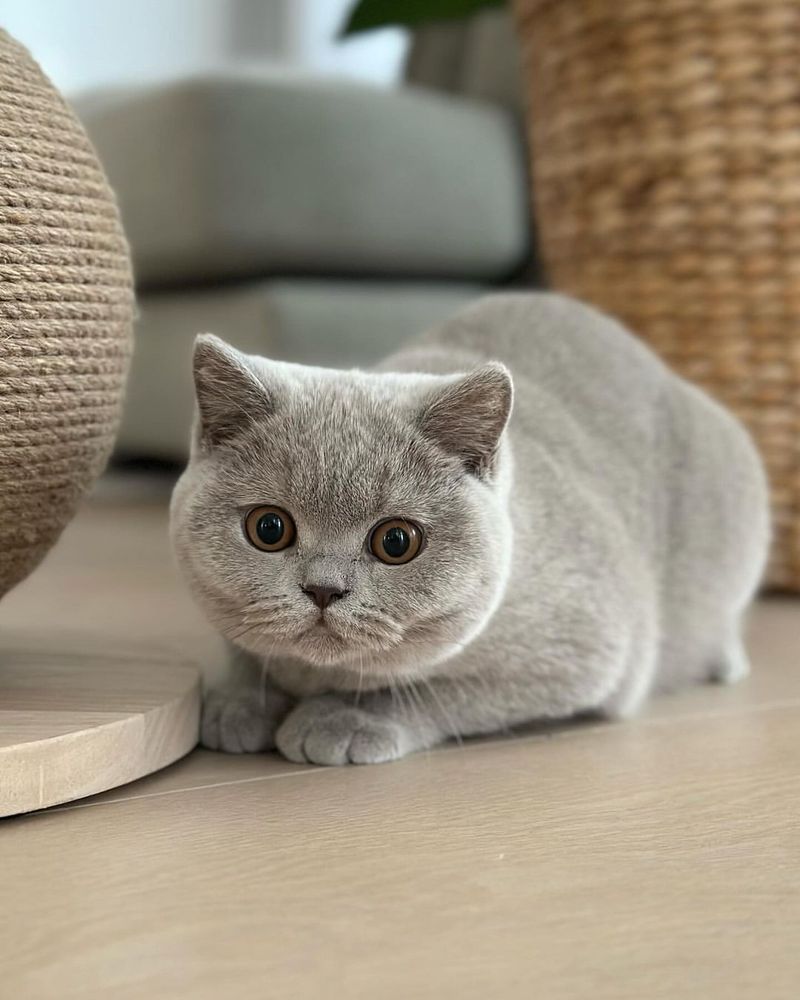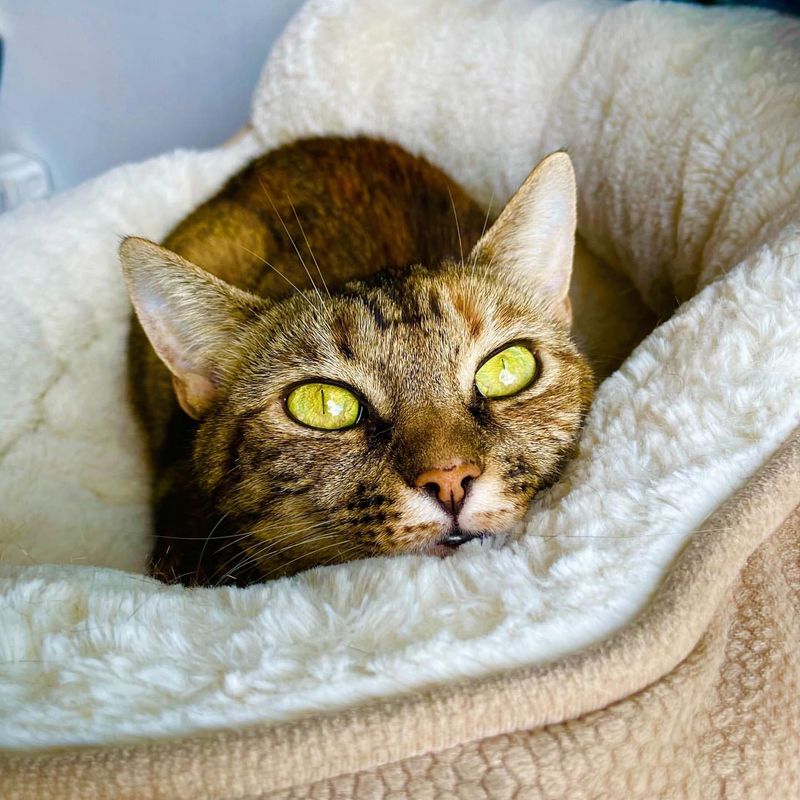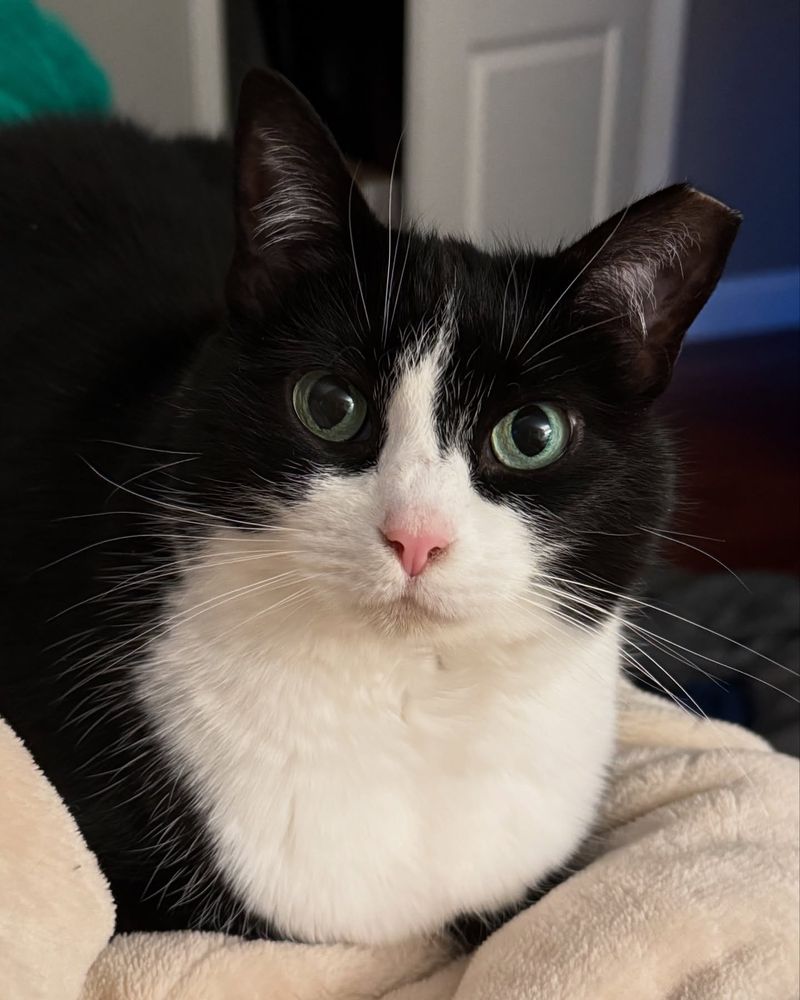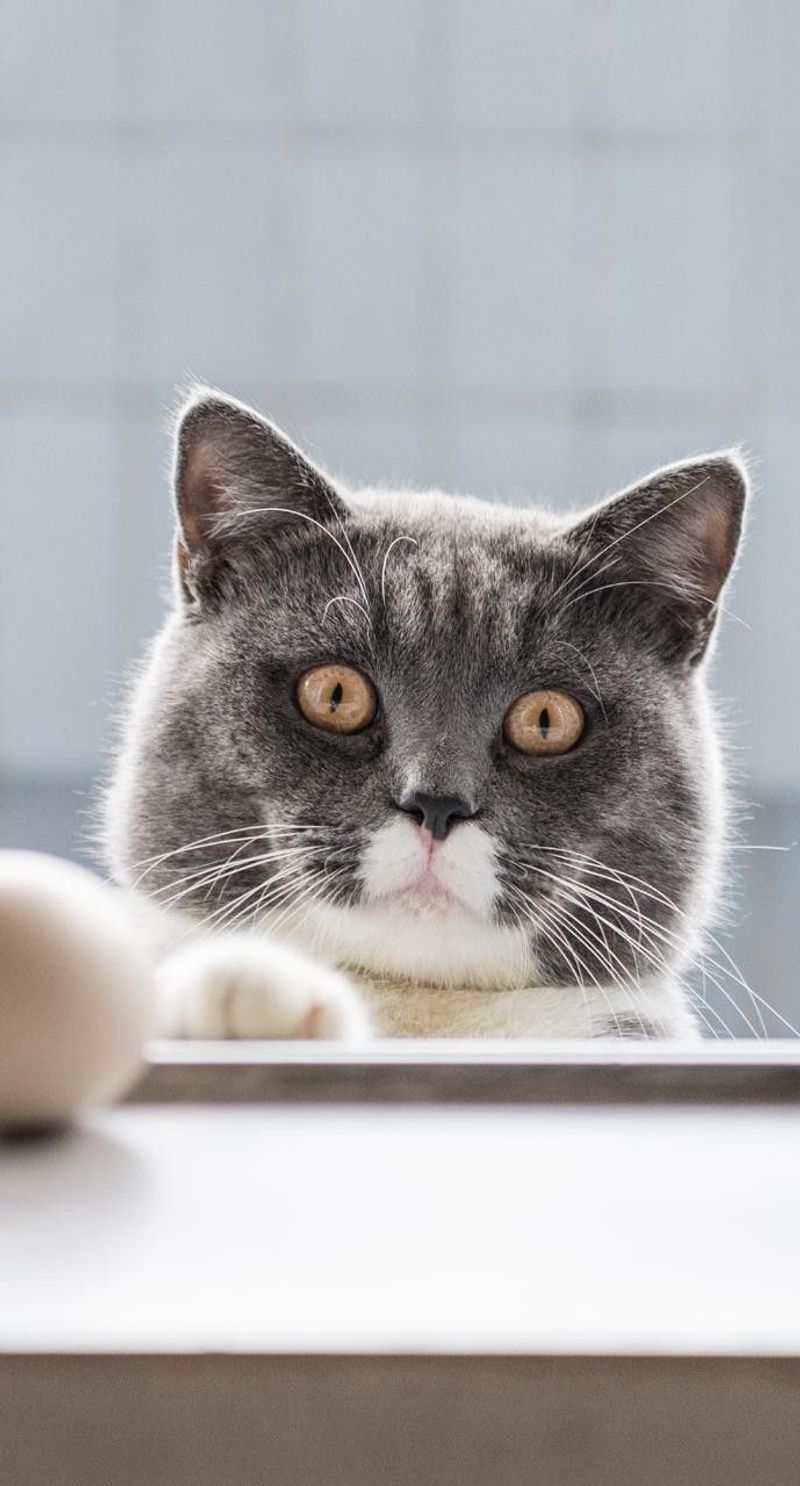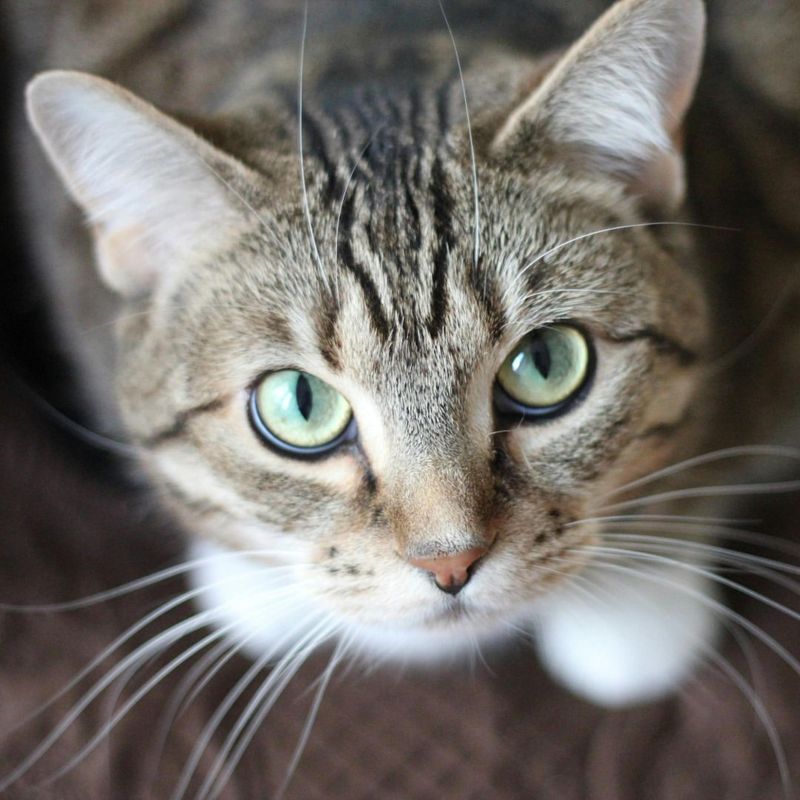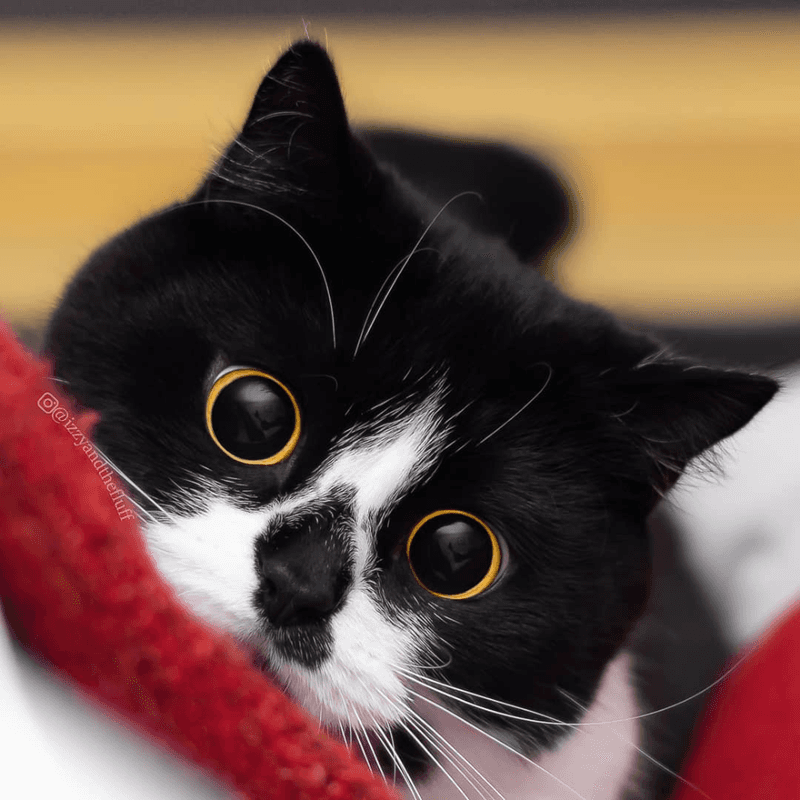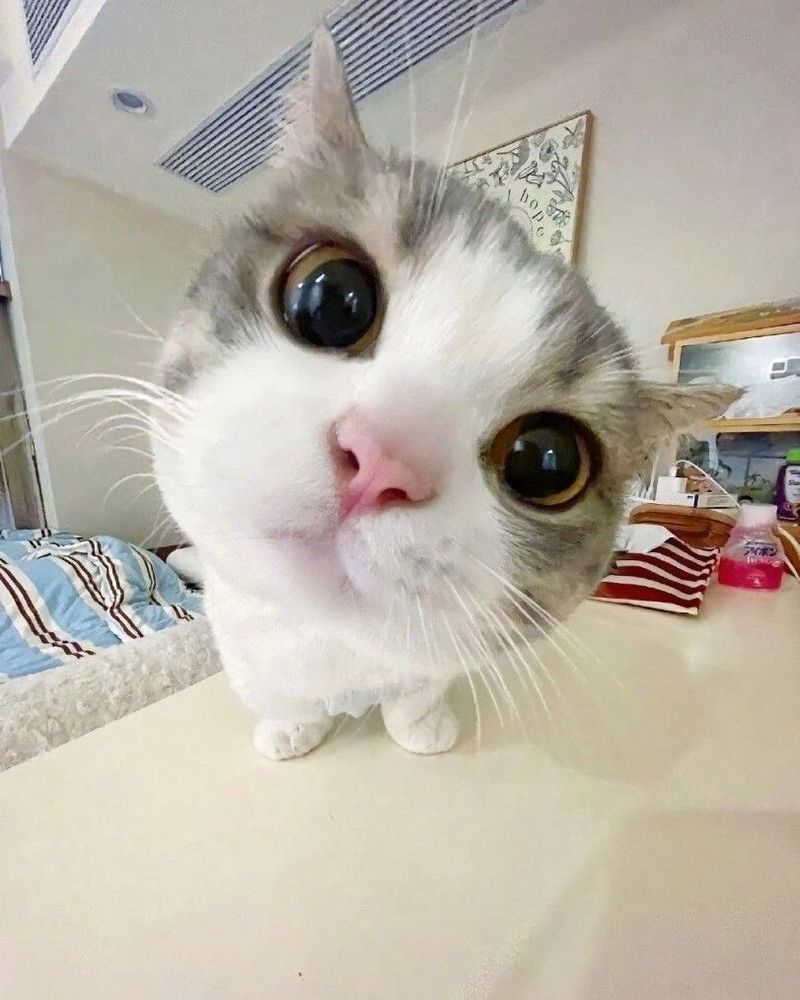📖 Table of Content:
Picture this: you wake up in the middle of the night, groggy and disoriented, only to find a pair of glowing feline eyes locked on yours. Creepy? Maybe. Endearing? Absolutely.
But why does your cat do this? Is it love? Hunger? A secret plan to take over your life? Cats are known for their mysterious behavior, but this particular habit of watching you while you snooze can feel like something straight out of a suspense movie.
Rest assured, your cat isn’t plotting anything sinister. There are actually some fascinating reasons behind this quirky nighttime behavior. From their innate curiosity to their need to communicate with their human, each stare holds a story.
1. Instinctual Monitoring
Cats are hardwired to be vigilant, even when they appear relaxed. While you’re asleep, your cat’s protective instincts might kick in, making it act as a nocturnal guardian. This behavior stems from their wild ancestors who needed to stay alert to potential dangers.
Your cat may sit close and watch over you, ensuring the environment is safe. This makes them feel in control and reassures their protective nature.
Observing your breathing patterns and subtle movements, your feline might be soothing itself by knowing you are safe. It’s their way of bonding and offering companionship, even if it feels a bit intrusive. Understanding this instinctual behavior can help you appreciate the unique ways your cat shows care.
2. Seeking Attention
Cats often crave attention, even during odd hours. If your cat is staring at you while you sleep, it might be because it wants some affection or playtime. Cats can be most active at dawn and dusk, so your sleeping hours might coincide with their energetic moments.
This behavior might be their way of saying, “Hey, I’m here!” or “Let’s play!” If you’ve been busy, your cat might choose nighttime as an opportune moment to catch up on missed interactions.
Observing your sleeping habits, your feline friend may find comfort in your presence and wish to be more involved. Encouraging some playtime before bed might help redirect this energy. Acknowledging this need for attention can deepen your connection with your pet.
3. Curiosity About Movements
Cats are naturally curious creatures, and your subtle movements during sleep can pique their interest. Your breathing, the twitch of a finger, or a shifting foot can be captivating to a feline’s keen senses.
Their gaze might be a result of their endless curiosity, trying to decipher the mysteries of human behavior. A cat’s ability to notice even the slightest movement makes them attentive observers of their environment.
This silent engagement can be quite common, especially in young or inquisitive cats. Understanding their curiosity can be a delightful insight into their playful nature. Offering toys or engaging activities during the day might help satisfy their investigative urges, keeping nighttime peace intact.
4. Emotional Bonding
Cats may stare at you while you sleep as a sign of affection. This behavior is a way for them to feel closer to you, forming a bond even during your restful moments. Their silent watch is a testament to the trust and love they have for you.
By observing you, they strengthen the emotional connection, finding comfort in your presence. This is particularly common in cats that have a strong attachment to their human companions.
The gentle gaze can be a soothing ritual, providing reassurance and contentment for both of you. Understanding this unspoken form of communication can enhance your relationship, acknowledging the depth of your feline’s loyalty and affection.
5. Monitoring Health
Your cat may be staring at you while you sleep as a way to monitor your well-being. Cats are sensitive to changes in their environment and can often sense when something is amiss. If you’ve been unwell, your cat’s watchful gaze might be its way of keeping an eye on you.
This behavior showcases their intuitive side, reminding us of their innate caregiving tendencies. Cats have been known to detect subtle changes in their humans, offering comfort and companionship during times of need.
Their presence can provide a sense of security, acting as a gentle guardian through the night. Recognizing this protective trait can help you appreciate the unique ways your cat supports you, even in silence.
6. Habitual Routine
Cats are creatures of habit, and your sleeping routine might be a part of their nightly ritual. If your cat has made it a habit to stare at you while you sleep, it might simply be part of its established routine.
This behavior could be comforting for your cat, providing a sense of stability and familiarity. Your presence during sleep might be a reassuring constant in their environment, and watching over you becomes a soothing ritual.
Understanding this habitual nature can help in creating a comfortable space for your cat. Providing a cozy bed or a familiar perch near your sleeping area might enhance this routine, making it a pleasant experience for both.
7. Desire for Warmth
Cats love warmth, and your sleeping body might be an irresistible source of heat. If your cat is staring at you while you sleep, it might be contemplating snuggling up for warmth.
This behavior is a simple expression of their need for comfort, especially during colder nights. The warmth you provide can be particularly alluring, encouraging them to stay close.
Recognizing this need for warmth can help you accommodate your feline friend. Offering a warm blanket or a heated pad nearby might fulfill this desire, ensuring both of you enjoy a restful night. This understanding fosters a comfortable and loving environment for your pet.
8. Nighttime Boredom
Cats can experience boredom, especially during nighttime when their human companions are asleep. If your cat is staring at you, it might be due to a lack of stimulation.
This behavior often occurs in active cats who need more play and engagement during the day. Nighttime can be quiet, and your cat might be seeking something to focus its attention on.
To address this, consider incorporating interactive toys or puzzle feeders to keep your cat entertained. Ensuring your cat’s curiosity is satisfied can reduce this nighttime vigilance, promoting a peaceful sleep for both of you.
